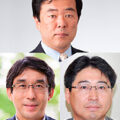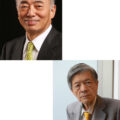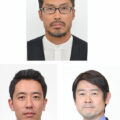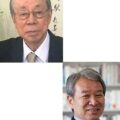The International Order after the Invasion of Ukraine: How to view this world in a transitional period
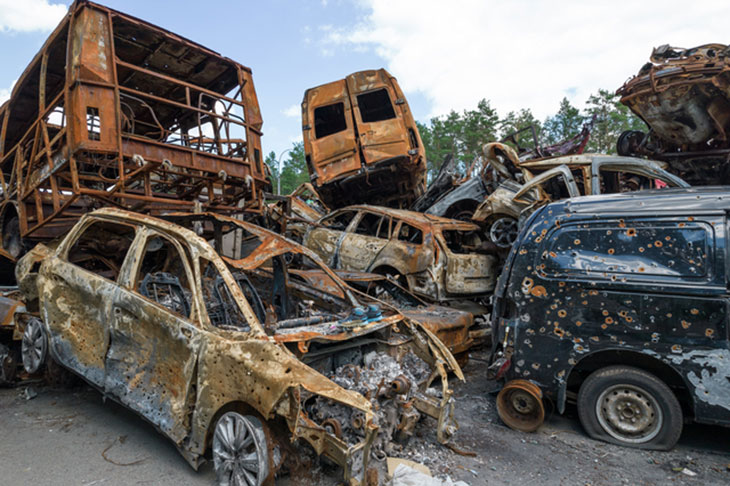
War in Ukraine: a dump of shot and burned cars in Irpin, Bucha district
Photo: Sun stock / PIXTA
Itabashi Takumi (Professor at the University of Tokyo) vs Mimaki Seiko (Associate Professor at Doshisha University)
The United States is inward-looking again
―It’s been more than half a year since Russia invaded Ukraine. Amid uncertainty about how and when this war will end, the crisis of the “liberal international order” has been hotly discussed throughout this time. Today, we will ask how we ought to view the world after the invasion of Ukraine from the perspectives of the United States and Europe.
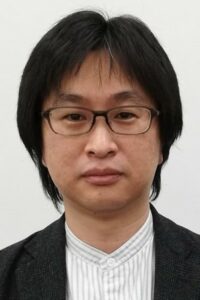
Prof. Itabashi Takumi
Itabashi Takumi: For Europe, the war in Ukraine is inevitably “our problem.” European countries certainly sent troops to civil wars in Afghanistan and Libya before, but for many that was just events on the “opposite shore.” However, they have no choice but to take in the Russian invasion of Ukraine as concerned parties.
What about the US on the other hand? Since they are involved in NATO, do they take it very seriously?
Mimaki Seiko: Right now, the US is buzzing about the midterm election in November. The public’s primary concern is the economy, and interest in Ukraine has waned. Sanctions against Russia have bipartisan support, but it is increasingly with reservations as they don’t want support to interfere with the US economic recovery.
At the outset of the Russian invasion, American citizens took an unprecedented interest in the Ukraine situation, with an overwhelming majority calling for strong support for Ukraine, even if sanctions against Russia had some impact on their own lives. This situation has led to speculation that the US will be revived as the leader of the international order.
This is because Biden’s diplomacy has criticized Trump’s “America First” diplomacy in terms of rhetoric and has called for American leadership. But the reality is that there has been quite a continuation of Trump’s diplomacy. In the summer of 2021, Biden, who has completely withdrawn US troops from Afghanistan, announced that the US would no longer conduct large-scale military interventions, which was a rather blunt “America First” declaration.
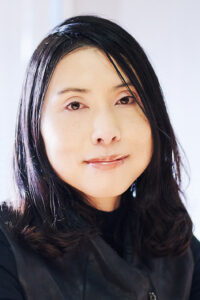
Prof. Mimaki Seiko
But interest in the Ukraine crisis has also faded. Against the backdrop of the COVID-19 pandemic and the Ukrainian war, inflation has not been stopped, and dissatisfaction with the economic policies of the Biden administration has grown. Amid life insecurities, the scope of American citizens’ “our problem” has once again become very narrow.
The continuity of the diplomacy of Biden and Trump is also evident in immigration and refugee measures. The Biden administration was among the first to announce a policy of accepting up to 100,000 refugees from Ukraine, showing a positive response that framed it as “our problem.” However, immigration and refugees from Latin America, where public order is deteriorating, is facing what effectively is a continuation of the Trump administration’s strict anti-immigration policy.
Not only the United States but also European countries accepted the Ukrainian refugee problem as “our problem” and showed generosity. That in itself is great, but it makes me think of the contrast with the callous response to the Syrian and Afghan refugees in those same countries. There is growing cynicism in Latin America and Middle Eastern countries that the “humanity” that European countries speak of is only for white people.
Latin American countries may blame the Ukraine crisis on Russian aggression, but they remain unwilling to join sanctions against Russia. This, of course, can be described as “realism” that seeks to avoid a decisive deterioration in relations with Russia and with the West, while benefitting from both sides.
But that’s not all. From the perspective of Latin America, which has seen direct and indirect interventions from the United States, Putin’s invasion of Ukraine is outrageous, but there is also a historically rooted mistrust of why the international community condemns Russia despite having been silent about the US interventions in Latin America. Latin American countries seek to show self-sustaining regional cohesion, balancing between Russia, China, and the United States.
Europe undergoing a major transformation
Itabashi: The Russia-Ukraine war is the largest classical aggressive war to occur in the 70 years since World War II. For Europe, this is arguably the biggest shock since the end of the Cold War.
The 30 years after the end of the Cold War have been chaotic in Europe, with no proper name other than “after the Cold War” or “post-Cold War.” It was a time during the first half of which it was believed that the world would be happy in the future and during the second half of which people inevitably realized that this would not be the case. This war seems to have been the final blow to the former optimistic perception of the times. In particular, I think the euphoria of European intellectuals has really died.
Germany’s engagement with Russia, in which continued close exchanges centered on the economy were hoped to eventually transform Russia and create good relations, has been fundamentally rejected. The basic line that has been built up for more than 50 years since the Neue Ostpolitik (German for “new eastern policy”) of the Willy Brandt government of West Germany has been renounced.
Germany suspended the Nord Stream 2 approval process shortly before the Russian invasion when Russia recognized the “Donetsk People’s Republic” and the “Lugansk People’s Republic,” declaring “independence” from Ukraine. The offshore natural gas pipelines project connecting Russia and Germany had to be halted despite it being a project that the German government advanced in the face of opposition from the United States.
On February 27, three days after the Invasion, Chancellor Scholz announced a clutch of measures that he called a Zeitenwende (German for “historic turning point”). The supply of arms to Ukraine was a major shift for Germany as a civilian power. They had been dodging US requests for an increase in defense spending for some time, but now decided to rapidly increase it by more than 2% of GDP per year by allocating a special fund of 100 billion euros.
This is an ironic twist of the times, but two parties of the three-party coalition government formed in December 2021 are the pacifist Social Democratic Party (SPD) and Greens (the other is the Free Democratic Party [FDP]). This shift took place under left-wing parties. The Greens, now actively engaged in military support for Ukraine, were initially reluctant. The tipping point was when the Bucha massacre video was spread. It reminded Europeans of the Holocaust.
One of the phrases used by the politicians in the Greens is “never again Auschwitz.” This is an old story, but in 1999, the Greens Foreign Minister Joschka Fischer advocated justification for supporting Kosovo airstrikes by saying “never again Auschwitz.” In other words, in order to stop the current massacre, we must abandon the principle of non-violence and deploy military force. This point is consistent.
Mimaki: The Bucha massacre of course came as a big shock to the American government and people. President Biden said, “Putin is a war criminal.” Other government officials followed suit, but the critical statement did not lead to a major shift in strategy.
Press Secretary Jen Psaki then spoke to the press corps and seemingly shot down various speculation about Biden’s remarks by emphasizing, “No, we are not calling for regime change. And that has not been our policy and continues not to be our policy.” Also, asked if they would consider the possibility of directly stopping Russian military action in response to the Bucha massacre, she stressed, “I think what the President’s objective is and his responsibility is to make decisions that are in the interest of the United States and the national security of the United States and the American people,” and stated, “and that is not to go to war with Russia.”
Despite being heartbroken by the sacrifices of Ukrainian citizens and outraged by Putin’s cruelty, I think an attitude widespread among American citizens was that they must not lose sight of national interests because of emotions. From around May, the number of respondents in opinion polls saying “The US is doing too much” began to increase.
Trump, who has caught these subtle shifts in public opinion and has his sights set on the presidential election in 2024, has begun to intensify his calls for “America First,” saying that “money should be spent on domestic problems rather than Ukraine’s problems.”
Itabashi: It’s interesting that Bucha’s impact wasn’t so big in the US. When the massacre occurred in Ukraine, Europe inevitably remembered World War II. All the place names we hear about in this war also remind us of the war between Nazi Germany and the Soviet Union.
The “liberal international order” walking unaided
―There is a debate on how to protect the “liberal international order” against authoritarian and despotic states like Russia. Isn’t Japan also being forced to figure out how to counter this “threat” in front of us?
Mimaki: For Japan, the United States is the only ally, and the importance of an “alliance of values” to protect democracy and freedom from states such as Russia and China, with their growing authoritarian tendencies, is also increasing.
However, “alliance of values” is a term that should be used with various reservations. Democracy in the United States is now swaying tremendously.
With regard to the Ukraine crisis, not all American citizens are anti-Putin as there are many latent Putin supporters as well. In a January 2022 Yahoo and YouGov survey, 62% of Republican supporters said Putin was a stronger leader than Biden, ahead of Biden’s 4%. Republicans, one of the two big political parties in the United States, have raised concerns about a rapid shift to authoritarianism from democracy research institutes such as V-Dem.
Putin has professed that liberalism has “become obsolete.” The right wing, which actively supports Putin, positively resonates with Putin’s authoritarian and anti-liberal stance. After the invasion of Ukraine, the blatant praise for Putin has died down, but the brunt of the right wing’s criticism has been directed more at the Biden administration than at Putin, saying that “Biden’s blunders led to the Ukraine crisis.”
A symbolic event occurred immediately after the invasion of Ukraine. In February, a mass gathering of conservatives, the “Conservative Political Action Conference” (CPAC), was held in Orlando, Florida. The meeting happened at the same time as the unprecedented development of Russia’s invasion of Ukraine.
But the presenters, including Trump and Florida Governor Ron DeSantis, who is expected to be a leading Republican candidate for the next presidential election, saw the “radical left” in the US as the biggest threat to the US, singling out the “radical left” rather than Putin. Trump, who gave a keynote speech, denounced them by saying, “The radical left is trying to replace American democracy with woke tyranny” (“Woke” means constantly living with an awareness of social justice, but was used here as a mockery of such an attitude.) In the Republican right-wing worldview, the threat to democracy comes from the Democratic left wing rather than Putin.
I think Putin understands the ideological divide in the United States and other developed countries very well. He has continuously spoken out to the world by criticizing “cancel culture” and making anti-LGBT claims, both of which are favored by the right wing, thereby inciting the right wing in the United States and the world and trying to deepen divisions in the United States. True to Putin’s prediction, there is a deep value divide in the United States today.
If the “liberal international order” debate goes too unaided, these crises in American political society will be overlooked and underestimated. It is important to always critically question the true nature of the “liberal.”
Itabashi: There is division all over the world. Germany also seems to see things completely differently depending on the generation and region.
For example, not a few people in the former East Germany have skepticism towards the West. Thirty years ago, they were told that they would be happy to be with West Germany, but they have always been treated as second-class citizens. According to a 2019 government opinion poll on the 30th anniversary of the fall of the Berlin Wall, a whopping 57% of citizens living in the former East Germany considered themselves “second-class citizens,” with only 38% responding that the “Unification of East and West Germany was successful.”
Mimaki: In June 2022, a report by the think tank European Council on Foreign Relations (ECFR) made headlines in Japan. People were talking about the question they raised about the Ukraine crisis, if you are part of the “Justice” camp or the “Peace” camp.
The “Justice” camp believes that it is vital to continue to impose sanctions on Russia and make them pay the price even if more Ukrainian lives are lost in the future, with an average of 22% of respondents in European countries supporting this. By contrast, the “Peace” camp says that even if Ukraine cedes part of its territory to Russia, the most important thing is to end the war as soon as possible, with 35% supporting this in June. Of the 10 countries surveyed, there were differences in attitudes between countries, such as Italy and Germany having a bigger peace camp and Poland having a bigger justice camp.
Itabashi: It’s a dichotomy befitting the social media era. It’s fundamentally strange to make a binary opposition of justice and peace. In fact, both the Scholz government and the Macron government continue to talk to Putin with an eye on balancing justice and peace. However, such an attitude is seen as “lukewarm.”
Mimaki: No matter how much you hate Russia, they won’t go away. It’s hard to predict what will happen to the Putin regime, but there’s a good chance it will survive while fraying at the edges. What kind of relationship will we have with that Russia? This question is inevitable if we want to talk about the future prospects of the international order.
Itabashi: Like it or not, Russia will remain in the Eurasian continent, and Scholz and Macron will continue the dialogue because they will have to build relations with Russia after the war. Even if Putin goes away, Russia remains.
Regardless of whether you belong to the justice camp or the peace camp, the question remains of what kind of international order to create after punishing Russia. Justice and peace are intertwined issues.
There is fundamental reflection in European discourse about how Europe should have included Russia after the end of the Cold War and why it failed. Security involves both deterrence and trust building.
Of course, it’s not that the West hasn’t done anything. In the 1990s, they tried to get Russia into the Council of Europe, but they ultimately failed to give them a sense of belonging. That is no reason to exonerate Putin, but there is a sense of remorse in European discourse that mistakes might have been made. I think this point could be discussed more in Japan.
Mimaki: I think it applies to Afghanistan as well. As clarified in the Washington Post book, The Afghanistan Papers: A Secret History of the War, the Afghan government established by the United States by militarily overthrowing the Taliban regime was corrupt from an early stage. Those involved were aware of a very different reality from the great cause of “letting democracy take root in Afghanistan.” Despite this, they continued to deceive the public and the world, and even now that the Afghan government has collapsed, there is no remorse. It’s not too late to scrutinize the 20-year Afghanistan War.
History must not be judged hastily
Mimaki: One of the things that bothers me about the debate on the Ukrainian war is deterministic arguments like “Russian belligerence and cruelty are rooted in history and will not change.”
Yes, Putin’s invasion of Ukraine was shocking, and the brutality that the Russian Army displays on the battlefield is staggering. However, rather than regard that belligerence and cruelty as essential and immutable, we need to unravel them in accordance with history.
Itabashi: Recently, something that has been tough on me as a historian and as I also wrote in the afterword of my new book Bundan no Kokufuku 1989–1990 (Overcoming divisions 1989–1990, Chuko Sensho), following the start of the Russia-Ukraine war, there has been a growing tendency to remove history from our contemporary perspective.
For example, since February 24, it has been held that Chancellor Merkel’s Russia policy was 100% wrong, and her reputation as a politician has changed significantly. I understand where this comes from, but I think the assessment at the time, for example with the shuttle diplomacy and marathon talks leading to the Minsk-2 agreement (armed conflict ceasefire agreement in the Donbass region of Ukraine) in 2015, was that they were doing everything they could.
Similarly, former President Gorbachev, who died in August 2022, has been criticized for favoring the 2014 Crimea annexation. What should be questioned now is not Gorbachev’s personal attitude in 2014—the majority of Russians, including critics of Putin, supported the annexation—but the implications of the end of the Cold War and the dissolution of the Soviet Union, in which he was involved as the nation’s leader, in the present world.
Mimaki: With his death during the ongoing Ukraine crisis, Gorbachev’s legacy has become complicated. His favoring the Crimea annexation naturally influences the evaluation of him, but we also need to look closely at the constraints of the times and the historical context.
This kind of slow and steady work is difficult in the social media era, where people prefer black-and-white assertions, so it is important to look at controversial figures from as many perspectives as possible and not simply make simple judgments.
Itabashi: What resonated the most with me in South Korean historian Jue-Hyun Lim’s Victimhood Nationalism in Contested Memories: National Mourning and Global Accountability was the point that anyone can become a victim by dehistorizing events such as war and removing the originally multilayered historical context of perpetrators and victims. In other words, even Japan could be construed as a victim in the Asia-Pacific War.
Mimaki: Not only have many combatants lost their lives in the “war on terrorism” over the past 20 years, but over the same period, 360-380,000 civilians have been killed as well (Brown University, the “Cost of War” Project). However, the public has not yet been able to face this fact. On the contrary, the country is filled with a victim mentality along the lines of “We, the United States, have been too generous with other countries. We have been too friendly.” It was Trump who skillfully captured this sense of victimhood and ascended to the presidency.
This is one of the major causes of the difference in attitude between the United States and Latin America, the Middle East, and other regions where the United States has historically disrupted order and claimed human lives. From the point of view of the United States, it is difficult to understand why they are so hated for being “beneficial.” It’s a sinful innocence.
Itabashi: Russia’s declaration of independence and invasion of two people’s republics coincides with how the Empire of Japan made Manchukuo “independent” in the 1930s. What bothers me about the Japanese debate is that there is not much sense of remorse with regard to Russia today being like Japan 80 years ago.
Moreover, while Siberian internment and the Northern Territories issue are often cited in connection with what’s happening in Ukraine, another thing to be referenced is what Japan did in the Second Sino-Japanese War.
Thinking about strengthening Japan’s defensive capabilities will be an important issue in the future. In light of the current situation in East Asia, it seems an inevitable step, but looking at the Japanese debate about the Russia-Ukraine war, it must be said that letting historical perceptions of past wars go on with such bias is fraught with danger.
What was Abe’s diplomacy?
―Finally, I would like to ask about Japan. Following the murder of former Prime Minister Abe Shinzo in July 2022, voices praising Abe’s diplomacy have been heard, especially among foreign policy and security experts. How do you see his diplomacy?
Mimaki: People speak vaguely about the “legacy of Abe’s diplomacy,” but exactly “what” did his diplomacy leave behind and “to whom”? It is necessary to consider this from the people’s perspective. In democratic nations, diplomacy should be developed for the benefit of the people, not for something as abstract as national prestige.
Even if the Legislation for Peace and Security was necessary in response to the tense international environment, heavy-handed measures have damaged the domestic legal order. There was also a pushy view that because they hold the majority, their decisions represent “democracy.” The expensive purchases of US weapons that increased during the “honeymoon” of Abe and Trump were not properly explained to allow the public to make a transparent decision and give their approval. National defense is of course important, but there are many things that are necessary to protect people’s lives, such as social security and pensions. The public is worried.
Diplomacy is difficult for the public to check, but it’s the public who is ultimately affected by diplomacy. Experts are of course important in evaluating Abe’s diplomacy, but it’s not enough. We need more of a people’s perspective. Just as experts point out things that the public cannot see, there are things that only the public can see and feel. The “legacy” of Abe’s diplomacy needs to be examined from various perspectives.
On October 25, 2022, former Prime Minister Noda Yoshihiko delivered a memorial speech for the late Abe at the plenary session of the House of Representatives. It was a wonderful speech that showed the utmost respect for Abe as a rival but also someone with common aspirations, also as a former prime minister who knows the loneliness and pressure of that position. What made an impression on me was what Noda emphasized at the end: “You have worked so hard to steer the nation for so long that you are destined to stand forever in the court of history.” “Who was Abe Shinzo, and what did you leave behind for this country?” “I want to keeping asking this until I run out of words. I must keep asking.” To keep asking about the legacy of the Abe administration. I think this is our responsibility as citizens of a democratic nation.
Itabashi: I think Abe’s diplomacy was very effective in showing Japan’s presence to the international community, even though there has been a relative decline in Japanese national power.
One of the achievements of the Abe administration was to uphold “free and open” and “liberal” values in the international community.
However, the fingers point back to us as well. For example, it’s fine that we criticize China’s violations of human rights in Xinjiang Uyghur. But Japan, for example, has to do something about accepting refugees and human rights issues related to technical intern trainees and at immigration facilities.
They also advocated freedom and democracy, but procedural democracy in Japan has been very dubious. Official document management, which is the foundation of democracy, has not been established.
As such, there are ways in which what is said and what is real have diverged. As Professor Mimaki points out, diplomacy doesn’t have to be well received by the international community or by allies. The question is whether it provides public security.
―This is an important issue that should not be forgotten when considering Japanese diplomacy at a turning point. Thank you very much.
Moderated by Nakayama Hideki, editor for Sekai
Translated from Ukuraina shinko iko no kokusai chitsujo: Tenkanki no sekai wo domiruka (The International Order after the Invasion of Ukraine: How to view this world in a transitional period),” Sekai, September 2022, pp. 164–173. (Courtesy of Iwanami Shoten, Publishers) [February 2023]
Keywords
- Professors Itabashi Takumi
- University of Tokyo
- Mimaki Seiko
- Doshisha University
- international order
- Russia
- Ukraine
- United States
- NATO
- Europe
- Cold War
- diplomacy
- Germany
- America First
- refugees
- Bucha massacre
- ideological divide
- authoritarianism
- democracy
- justice
- peace
- Afghanistan
- war on terror
- Putin
- Biden
- Trump
- Abe diplomacy

